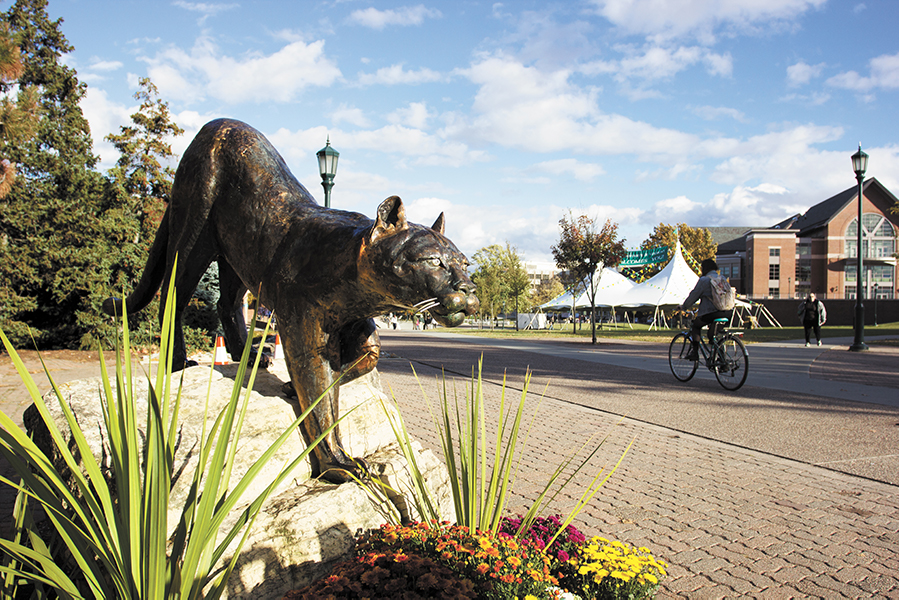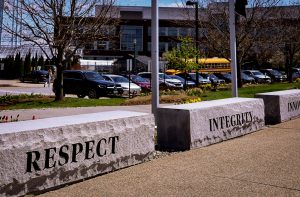UVM measured against peer colleges
Representatives from various colleges made a visit to UVM as part of the reaccreditation process in order to ensure that UVM has met certain standards to provide quality education. The discussion among the staff included performance assessments, sustainability on campus and how wage raises are distributed.
April 4, 2019
Representatives from various colleges visited campus as part of the reaccreditation process, but few people showed up to the open forums.
When a university is accredited, it means that the institution has met certain standards in order to demonstrate that quality education is being provided, according to the New England Commission on Higher Education website.
The results of the accreditation can affect students’ financial aid and the University’s standing.
Being an accredited university is important since it allows people to trust the education that is being provided, said Brian Reed, co-chair of the Accreditation Executive Committee.
“There is an assurance to prospective students, parents and the public that we undergo a vigorous process to maintain academic excellence, financial viability and so on,” Reed said.
A student’s ability to receive federal financial aid is dependent on whether or not UVM gets reaccredited, Reed said, since accreditation provides the University access to Title IV funds.
Only three students showed up to the student forum, and roughly seven attended the faculty forum.
Gary Derr, vice president for executive operations, stated in an email to the UVM community that the meetings for students, staff and faculty were all taking place at the same time.
On the UVM website, the dates and times for each meeting were listed correctly, stating the student and staff forums were happening at the same time March 25 and the faculty forum happening March 26.
Senior Nick Bouffard, SGA member on the Academic Affairs Committee, said accreditation serves as insurance for the students, since the University is compelled to review itself and its students.
“It’s like a moral code in a way for the institution. It asserts a lot of things, many of which include student rights,” Bouffard said. “This is an institution for academics, and it is ensuring that the institution provides those.”
Bouffard believes that students ought to care about the reaccreditation process because it gives them data concerning how the University is handling various topics.
“Students should care because it provides language and research for which we can argue for things for ourselves and it serves to hold the institution to higher standards,” he said.
Major topics discussed among students included the amount of distribution requirements students have, advising and the ability to transfer credits from other institutions.
David Dooley, president of the University of Rhode Island and the chair of the visiting team of representatives, was concerned about the fact that students have such as hard time double majoring, especially across colleges.
Bouffard said that he can recognize the need for having a broadened experience that distribution requirements give, but it can make double majoring hard.
“It’s nearly impossible. You’d have to do it from day one,” SGA President Ethan Foley, a junior, said.
The discussions among the staff included performance assessments filled out by staff, campus sustainability and wage distribution.
Sustainability Director Gioia Thompson felt that the NECHE members asked good questions and addressed the topics that she felt were significant to the staff.
Thompson said that although it was a small group of staff members at the hearing, she still felt that all the important topics and issues were touched upon.
“Everybody gets a chance to learn and to grow,” Thompson said about the reaccreditation process.
“The idea is that the report has legs, that it has credibility, because we can actually show the data that we are drawing our conclusions from,” Reed said.
The University should hear back from NECHE about the final findings of the entire process by some point during the fall semester, Reed said.







